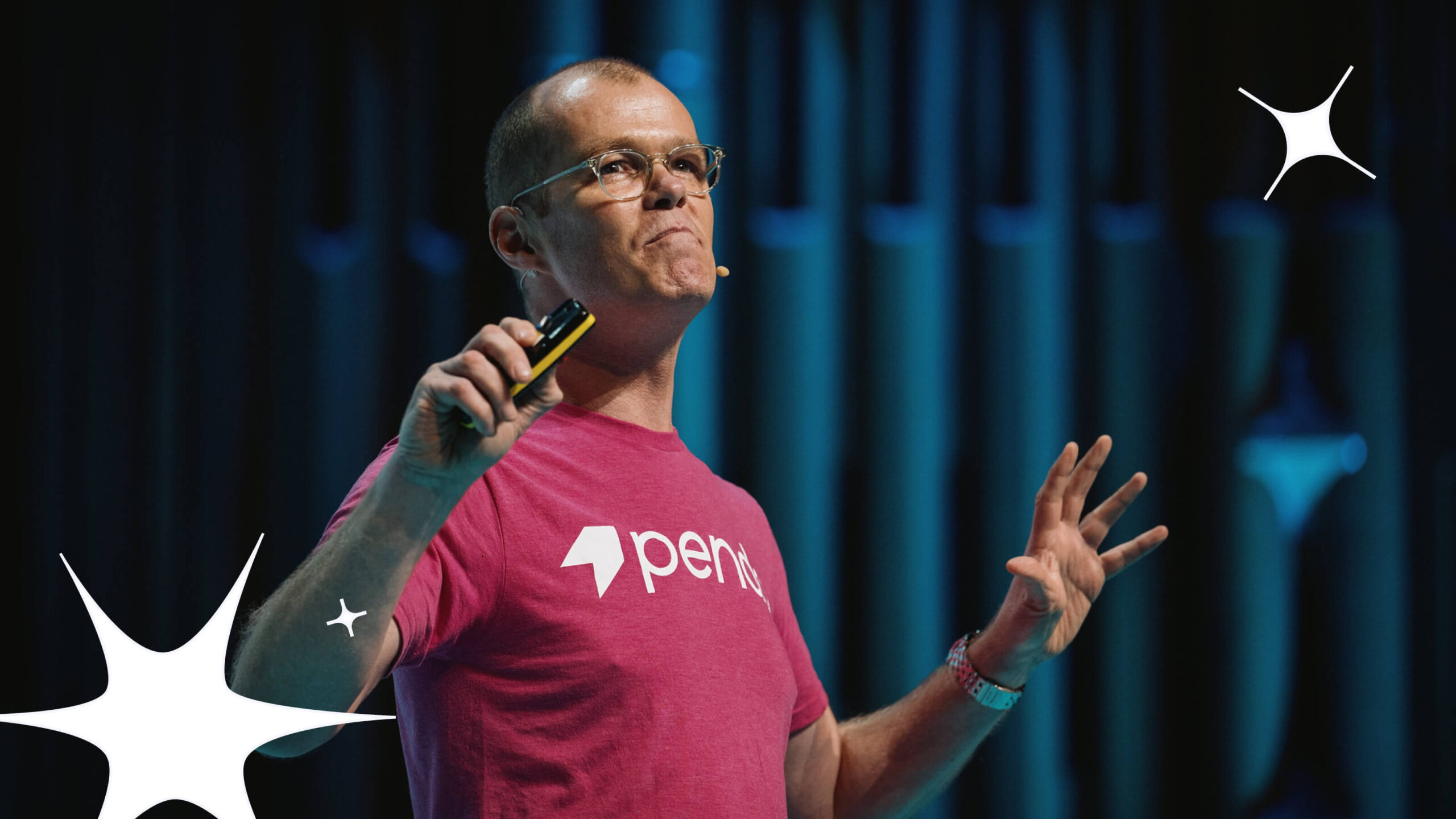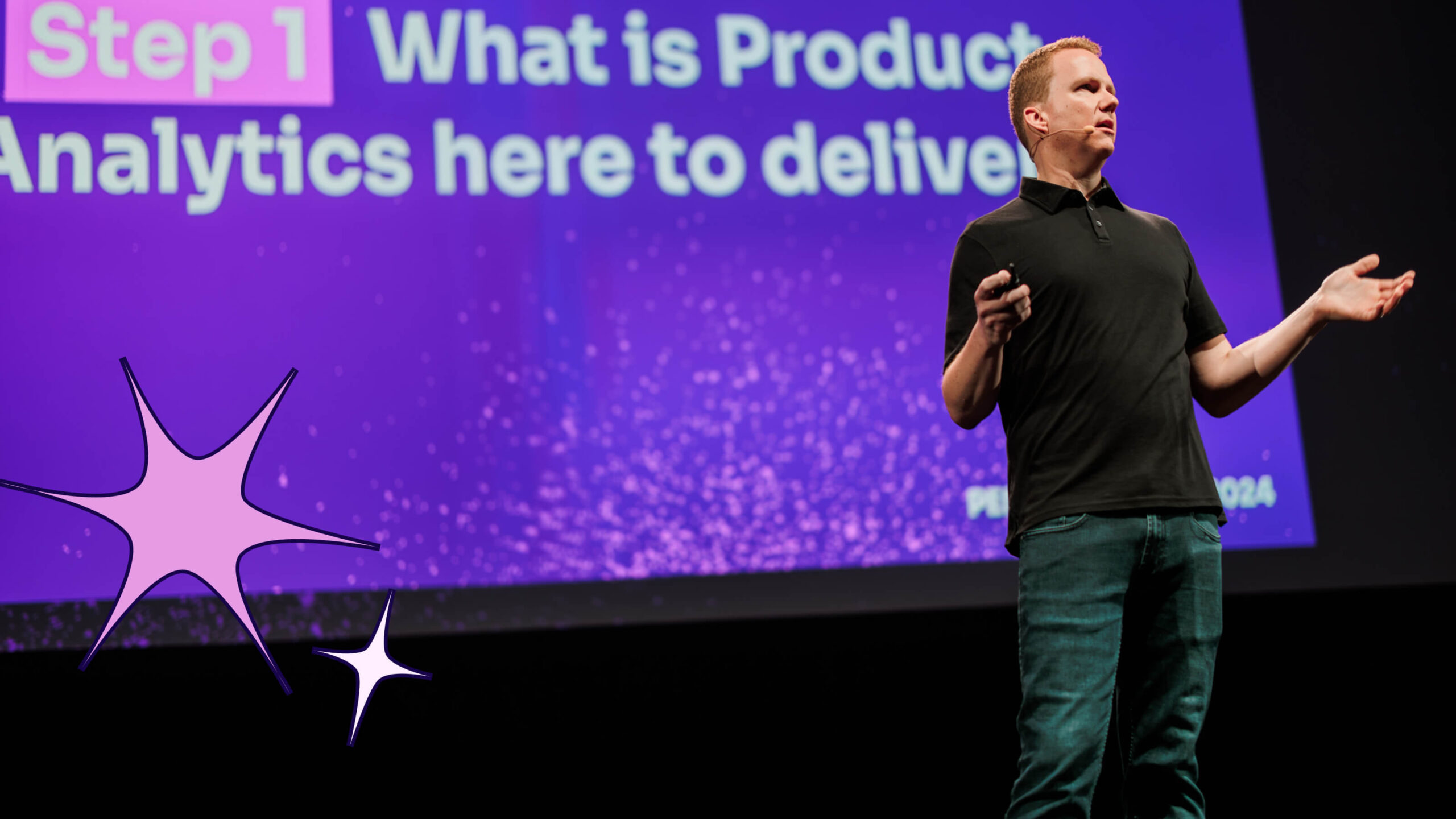Pendomonium offer a unique opportunity to connect with other product people, learn from industry veterans, and get hands-on training when you attend a workshop of your choosing. With seven different workshops this year, we have a wide range of options.
- Rosemary King is leading Product Management Foundations
- Ryan MacCarrigan is leading Mapping to Solve Product Problems
- Trace Wax is leading Communications & Alignment
- Curtis Michelson is leading From fear to future-proofed
- C. Todd Lombardo is leading Product Roadmaps, Strategy and Alignment
Several of our workshop leaders gave us their insights in a Q&A series to explain their approach, motivations, and offer advice.
1. What does product management mean to you?
Rosemary: Delivering the most value to the most people soonest.
Ryan: Product Management is as much a culture and mindset as it is a day-to-day practice. It means instilling an evidence-based culture where people test and reason their way to the best possible outcomes for the business. It also means developing and honing one’s product sense over time, including being able to access a dynamic toolkit of frameworks and methods to de-risk assumptions, run experiments, gather customer feedback, prioritize and make decisions in the face of uncertainty, and of course, ultimately, deliver outstanding results.
Trace: Meeting stakeholders and teams where they are to inspire and guide them to where they need to be in order to create an impact.
Curtis: Offering clear-eyed perspective in a complex and multi-dimensional social/political cauldron.
C.Todd: Working with a team to create value for an end customer or end user of your product or service.
2. What advice would you give to someone starting out in product?
Rosemary: Think iteratively. Don’t let perfect be the enemy of good.
Ryan: You’ll need a roll-up-your-sleeves attitude and a ton of humility because this is not a space for know-it-alls. Every day, you’ll be faced with uncertainty and risk. You’ll experience imposter syndrome but still need to wield influence and exude confidence as a leader. One of my favorite expressions is: “You don’t know what you don’t know.” I tell myself this everyday, and I look for this attitude when hiring. Product managers sit within one of the most complex stakeholder ecosystems in any business.
Trace: Learn what good looks like from the best Silicon Valley companies, then put all of that aside. Then learn and do the 1-3 things that will make the biggest difference in your work right now.
Curtis: Master some technical area but then put all the rest of your energy into soft skills, which turn out to be the hard ones. If I was to give it a ratio, I’d put 10% of my energy into something like AI or Ux or business modeling and then 90% of my time and energy into things like personality profiling, cognitive bias awareness, theory of learning, innovation and growth mindsets, facilitation, facilitation, facilitation.
C.Todd: Dial up your curiosity to 11.
3. What are the biggest challenges that entry level product professionals face today?
Rosemary: You have to be learning on a million levels—your domain, your customer, your product, your org, your team, and yourself.
Ryan: Product roles are highly coveted and competitive, but don’t let that deter you. Demonstrate a willingness to learn, the ability to think deeply and critically, the desire to proactively build trust within the stakeholder ecosystem, and an understanding of the latest practices and trends within the industry. That includes understanding how AI tools can enhance your productivity. Demonstrating or talking about these points and even admitting what your weak spots are and how you’re working to upskill yourself will give you an advantage over other candidates who simply check the boxes.
Trace: Feeling overwhelmed from ad hoc requests, technical debt, and keep-the-lights-on (KTLO) work that distracts from building market-addressable products that move your key metrics. New PMs can be eager to please, saying yes to things when they’d get better results and more respect by saying no.
Curtis: The market has become saturated with PMs and supply has outstripped demand. It’s not as easy to ‘break into product’ as it was 10 years ago. With the genAI moment now upon us, much uncertainty looms over hiring decisions. The best thing you can do is find your local ProductTank or other MindTheProduct event or training and learn as much as you can. And, meet as many people as you can.
C.Todd: The firehose of information that confronts us daily.
4. What was your favorite bit of feedback after one of your workshops?
Rosemary: That someone was able to step into a meeting the day after the workshop and apply a piece of language, and it was really effective in driving an “ah-ha” moment for her stakeholders.
Curtis: “My eyes are open and ready to take immediate action to stay ahead and not fall behind.”
C.Todd: A participant came up after the workshop with a copy of the Roadmap book. The book had post-it notes throughout with dog-eared pages. She held it up to me and said “This book has changed my life!” I was so humbled and honored to receive such feedback.
5. What inspired you to get into training?
Rosemary: I think the best way to improve yourself is to teach other people. It helps you understand things on a much deeper level.
Curtis: It’s always been a part of my consulting and coaching portfolio. I discovered I had a knack for turning bad PowerPoints into engaging activities.
C.Todd: Having sat through incredibly boring trainings in my career, I want to make trainings engaging and interactive so that concepts are tried and tested like a laboratory. I also had nothing like this when I started out and while we all need to struggle a bit to learn our craft, maybe some guidance and frameworks can help.





